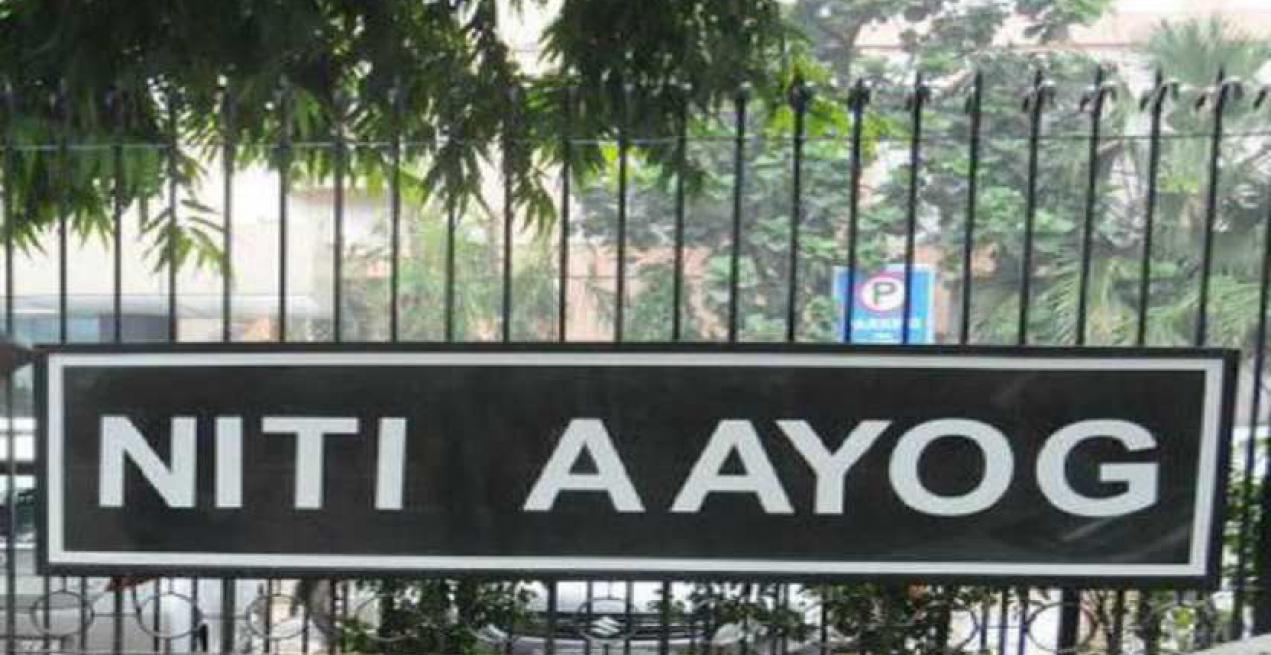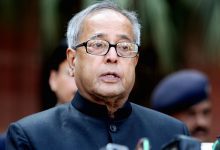A major decision of Modi as Prime Minister was to dismantle the 65-year old and well-oiled institution of Planning Commission and replace it with Niti Aayog, through an executive order. A major reason for this action was to provide more fiscal autonomy to states and to decentralise developmental activities. Three years down the line analysts wonder if this rejig has in any way helped fiscal federalism? An analysis, for Different Truths.
Three years after setting up of Niti Aayog and path-breaking award of 42 percent devolution to states from the central pool of taxes by the 14th Finance Commission, the question is now asked whether fiscal federalism has really got a shot in the arm by these path-breaking steps. Has Prime Minister Narendra Modi achieved the much-touted promise of fiscal federalism? Modi as Gujarat chief minister was among several chief ministers critical of what they called over-centralisation and arm-twisting approach of the Planning commission.
So a major decision of Modi as Prime Minister was to dismantle the 65-year old and well-oiled institution of Planning Commission and replace it with Niti Aayog, through an executive order. A major reason for this action was to provide more fiscal autonomy to states and to decentralise developmental activities. Around the same time, the 14th Finance Commission headed by former RBI governor Y V Reddy devolved more resources to states by drastically reducing the centrally sponsored schemes for which tied funds used to be released to states by the Planning Commission. The commission used to disburse around Rs 5 lakh crore annually for various plan schemes to states and so it acted as a bridge between states and various central ministries. Now the money for central schemes, though vastly pruned, is released by the finance ministry, which does not have the wherewithal to do it. Finance ministry is now the nodal agency with the distinction between plan and nonplan expenditure done away with. Also, the states will have to directly deal with the central ministry concerned for centrally sponsored projects, which were earlier routed through the Planning Commission. The 14th Finance Commission also ensured that states got 10 percent more untied money from the Centre.
of Planning Commission and replace it with Niti Aayog, through an executive order. A major reason for this action was to provide more fiscal autonomy to states and to decentralise developmental activities. Around the same time, the 14th Finance Commission headed by former RBI governor Y V Reddy devolved more resources to states by drastically reducing the centrally sponsored schemes for which tied funds used to be released to states by the Planning Commission. The commission used to disburse around Rs 5 lakh crore annually for various plan schemes to states and so it acted as a bridge between states and various central ministries. Now the money for central schemes, though vastly pruned, is released by the finance ministry, which does not have the wherewithal to do it. Finance ministry is now the nodal agency with the distinction between plan and nonplan expenditure done away with. Also, the states will have to directly deal with the central ministry concerned for centrally sponsored projects, which were earlier routed through the Planning Commission. The 14th Finance Commission also ensured that states got 10 percent more untied money from the Centre.
Three years down the line analysts wonder if this rejig has in any way helped fiscal federalism? There seems to be no clear-cut answer and the situation, in fact, is quite confusing. But one thing is quite clear that more money in state’s kitty has not resulted in any substantial gain in social and economic development, particularly in poor and less developed states.
Niti Aayog, which examined the social sector expenditure of states pre and post 14th finance commission, observed that barring Sikkim, Tripura and Uttarakhand, all other states were better off in terms of financial allocations. The total central transfers increased by 21.9 per cent in two years 2014-16. But unfortunately, the social sector expenditure in the states increased by a mere1.73 per cent. The expenditure on health and education as the percentage of GSDP too witnessed only marginal positive increases.
This means that though states are better off financially, their spending on developmental activities has not gone up commensurate with the increased allocation. This appears to be one of the reasons for better developed states, particularly southern states, to demand revisiting the high devolution by the 15th Finance Commission. They feel states spending more money on social schemes are being punished. Because of lack of monitoring less developed states in particular are not spending money on what it is meant for and hence may create a problem for the financial health of the entire country. Southern states also feel that they are being devolved less for doing well on social indicators like population through better implementation of social schemes.
Veteran economist and 14th Finance commission member M Govinda Rao, while analysing the terms of reference, said that the Centre suggesting the 15th Finance Commission to review the impact of the ‘overly generous’ devolution by the 14th Finance Commission and take into account the impending commitments arising from New India 2022 is to nudge it to reduce devolution to states to meet the requirements of the central schemes.
V Srinivas, Chairman, Board of Revenue of Rajasthan, who gave a lecture on “Fiscal Federalism,” said  there is a clamouring for more devolution particularly by BIMARU states as they have a lot of catching up to do with developed states like Tamil Nadu, Maharashtra or Gujarat. Clearly, in case of Rajasthan, the increased allocation has been utilized to meet the financial commitments arising out of the restructuring of its ailing state electricity board. He also felt there used to be a healthy debate on developmental activities of states in the erstwhile Planning Commission.
there is a clamouring for more devolution particularly by BIMARU states as they have a lot of catching up to do with developed states like Tamil Nadu, Maharashtra or Gujarat. Clearly, in case of Rajasthan, the increased allocation has been utilized to meet the financial commitments arising out of the restructuring of its ailing state electricity board. He also felt there used to be a healthy debate on developmental activities of states in the erstwhile Planning Commission.
The substantial increase in devolution to states has not resulted in a commensurate rise in devolution by state governments to panchayats and municipalities. This is evident from the fact one of the terms of reference of 15th Finance Commission is to recommend measures to augment the consolidated fund of states to supplement resources of the panchayts and municipalities.
Former member-secretary of Planning commission Sindhushree Khullar and former Planning commission advisor Gajendra Haldea also implied that the rejig aimed at promoting fiscal federalism has not really helped in stepping up developmental activities in states.
Srinivas, however, felt three years is too short a time to judge the performance of a new body Niti Aayog. Besides, there is no tangible evidence to suggest that the increased devolution had resulted in a boost to social spending in states.
Srinivas quoted Y.V. Reddy’s recent paper ‘Union-State Relations and Reforms’ to say the practice of fiscal federalism in India has been commendable over a long-term perspective in view of the severe challenges posed since Independence. Greater role of states in the pursuit of decentralised development should not undermine the role the Union government has to play in macroeconomic stability. This means that the old system was working well and the re-jig has not achieved desired results so far.
Govind Rao also felt that despite several weaknesses, inter-governmental fiscal arrangements have served well in the country during the last 50 years. It has also achieved significant equalisation and a degree of cohesiveness in a large and diverse country.
Reddy was of the view the success of Niti Aayog will depend on how it captures the new realities of economic management in the planning process. The sooner they are addressed the better for the country. Otherwise, a vacuum may be created in the planning process.
K R Sudhaman
©IPA Service
Photos from the Internet
#IndianEconomy #FiscalFerderalism #NitiAayog #IndianPolitics #DifferentTruths





 By
By

